Counseling Center
At The Counseling Center at RWU, we strive to enhance the psychological well-being of students by providing an affirming, confidential, equitable, and safe environment encouraging self-exploration, reflection, and resiliency. With a commitment to a developmental approach enhanced by a social justice lens, we aim to facilitate individual empowerment and growth through meaningful, healthy relationships and community collaboration.
Sessions
The Counseling Center currently offers sessions that are either in-person or are telemental health (remote) through synchronous video. RWU students that elect for a telemental health (remote) format must be located within Rhode Island. Sessions typically run for about 50 minutes.
Appointments
During the academic year, appointments are available to eligible full-time RWU students and are at no cost. During the summer months, appointments are available for eligible residential RWU students who are currently taking one or more in-person classes on the Bristol campus, and/or who are engaged in university-affiliated employment on the Bristol campus.
During the academic year, the Counseling Center is open Monday through Friday, on non-holidays, from 8:30am to 5:00pm. During spring, summer, and winter breaks, the Counseling Center is open Monday through Friday, on non-holidays, from 8:00am to 4:00pm. Call the Counseling Center at 401-254-3124 to schedule an appointment or visit us on the 2nd floor of the Center for Student Development building. If you reach our voicemail when you call the Center, please leave your first and last name and phone number. If you do not leave this information for us, we may not be able to return your call.
You will be asked to complete a set of forms prior to your first appointment. Generally, eligible students can have an appointment within 1-2 weeks of their initial request, depending on their and our schedule availability. In rare and unusual emergency circumstances, eligible students may be seen more immediately. Occasionally we are contacted by persons wanting to make an appointment, not for themselves but for a student. It is important to us that students who seek our services do so out of their own choice, so we require all students to schedule their own appointments. Appointments generally last 50 minutes in duration and occur on a regular, but not necessarily, weekly, basis. If, for whatever reason(s), you decide you want to transfer to a different counselor, you can inform your counselor or inform the Secretary that you wish to switch counselors.
For EMERGENCIES or urgent concerns, if you are on campus currently, call Public Safety (available 24/7/365) at 401-254-3333. If you are off-campus in the Bristol area, call East Bay Center (available 24/7/365) at 401-246-0700. Options for any student, regardless of where you live, include calling 988 or 911, visiting a local hospital emergency room, and/or contacting any of these free and confidential resources available to you:
National Hopeline Network: 800-442-HOPE (4673)
The Samaritans of Rhode Island: 401-272-4044 or 800-365-4044
Asian LifeNet Hotline: 877-990-8585
Trans Lifeline: 877-565-8860 [available Mon-Fri 1:00pm-9:00pm on non-holidays]
Trevor LGBTQ Lifeline: 866-488-7386 or text START to 678-678
Persons of Color Crisis Text Line: Text STEVE to 741-741
Crisis Text Line: Text HOME to 741-741
Counseling Center Mission Statement
We strive to enhance the psychological well-being of students by providing an affirming, confidential, equitable, and safe environment encouraging self-exploration, reflection, and resiliency. With a commitment to a developmental approach enhanced by a social justice lens, we aim to facilitate individual empowerment and growth through meaningful, healthy relationships and community collaboration.
Counseling Center Diversity Statement
Roger Williams University highlights diversity in one of its five identified core values. As members of the university community, we too endeavor to recognize and appreciate the diversity that exists amongst all of us. In our Center this means we honor all individual differences which include, but is not limited to, age, race, ethnicity, sex, national origin, religion/spirituality, sexual orientation, gender identity, ability, and socioeconomic status. This also means that we ourselves are an imperfect, “work in progress” in acknowledging our own assumptions and in striving to continuously learn more about the human condition. This is manifested by our openness to receive feedback and our nurturance of growth and learning for ourselves and others we interact with.
Our views are firmly rooted within a social justice perspective. We recognize that the effects of privilege, oppression, discrimination, stereotypes, and bias are pervasive within individual, systemic, and societal levels. These forces can have profound and harmful influences on student well-being. We strive to be a supportive presence to provide empathic listening, empowerment, and advocacy to mitigate those effects. One of our most important considerations is to minimize potential barriers so all students receive the respect, care, and treatment that they deserve, both within the Center and within the broader university community.
Why is confidentiality so important?
When deciding whether or not to see a counselor, students often wonder if their privacy will be protected. In order to share your private thoughts and feelings, it is necessary to trust that what you say will be kept between you and your counselor.
It is important for you to know that any records of your visit to the Counseling Center do not become part of your academic record/transcripts, nor are they made available to administrators, faculty, or staff of the university outside of the Counseling Center. No one, including your family members, has access to your counseling attendance or records.
May I choose to break confidentiality?
In the legal sense, "confidentiality" is something that binds the mental health professional from making disclosure about a client's visit. However, you as a client may talk to whomever you wish about your own counseling experience. From time to time, you may decide that you want to talk about your counseling with a family member or a close friend. That is fully your decision.
Occasionally, situations arise when it might be beneficial to have your counselor provide information or speak to a third party about you. If such a situation occurs, you or your counselor may bring this up for discussion during your meeting together. As you and your counselor consider the potential benefits and disadvantages about sharing this information, you will be better able to make an informed decision.
If you both agree that it would be beneficial for your counselor to do so, you will be asked to sign an authorization to release and to share the information with an outside party. The laws which govern our services require us to "obtain your informed and written consent."
The information to be disclosed may be comprehensive or limited to a specific purpose which fits the situation. No matter who they are for, all consents are in writing, specify who will receive the information, describe what information is to be shared and require your signature.
The Counseling Center follows this requirement with everyone, including your family members, university staff, as well as former or future counselors. You have the right to refuse to provide consent, or to revoke it once it is given.
Are there any limitations or exceptions to confidentiality?
There are three important exceptions to confidentiality that all counselors in our Center must follow. These exceptions are part of Rhode Island state law and cannot be altered by Roger Williams University or by the Counseling Center.
The first exception concerns protection from imminent harm. If your counselor believes you to be at imminent risk to seriously harm or kill yourself or someone else, the counselor may take actions to protect you or others, even at the expense of your confidentiality.
Second, if your counselor becomes aware that a child (minor) or elder is being abused or neglected, they may take steps to protect that child or elder, which may involve sharing information that you had previously shared with the counselor.
The third exception is that if your records is requested by court order, those records may be shared with the court. This is an extremely rare occurrence.
While all counselors are legally and ethically mandated to follow these guidelines, every effort is made to inform you of your rights and to protect your privacy to the fullest extent possible under the law. If you have any questions or concerns about confidentiality, please ask your counselor or the Interim Director for clarification.
Emailing the Counseling Center
We at the Roger Williams University Counseling Center want to hear from you. However, because of the deeply personal service we provide, we also place a high value on your privacy and our ability to best serve you. Therefore, we want to take a moment to clarify the appropriate use of email as a tool in contacting us. We hope that these guidelines help you to decide the best way to reach our staff.
Services
If you are struggling with a personal problem or are concerned about someone you know, the best way to contact us is by phone at 401-254-3124. While we try to check our email regularly, you have no way of knowing if one of us is unavailable due to illness, vacation, computer problems, etc.
It is very important that we limit the use of email for comments or general questions about our services.
If your situation is urgent, RWU students are encouraged to call us or Public Safety at 401-254-3333.
Email Confidentiality
We cannot guarantee that your email will remain confidential. We will do our best to keep your communications private, but we do not have control over the flaws in Internet technology or other administrative policies regarding monitoring of email. If you are in any way concerned about the contents of your email being read by someone other than the person you are contacting, you should consider alternative ways of contacting us.
When we respond to your email, we will respond to the address from which it was sent. If you do not wish others who may have access to the email account that you are using to also have access to our response, please consider another means of communication.
What if you are not a Roger Williams University student?
We do not provide services to students who are not currently full-time Roger Williams University students or who are non-students, but we do welcome comments or questions about our services and this website.
Resources
Resources for Black people
Contemporary self-care tips for Black people
7 Mental Health Resources for Black People
44 Additional Resources for Black People
Resources for Allies
Direct actions you can take as an Ally
Anti-racism Education for White People
75 Actions White People Can Take Right Now
Resources for Everyone
On-campus Support
Off-Campus Therapy
If you prefer to meet with a therapist off-campus in your local area, we suggest that you consult with your current provider and/or review both of these referral sites: Psychology Today and Zencare. You can also contact the Counseling Center at 401-254-3124 and leave us a voicemail with your contact information if you need assistance in locating an off-campus referral.
Our Staff
Christopher Bailey, Ph.D.
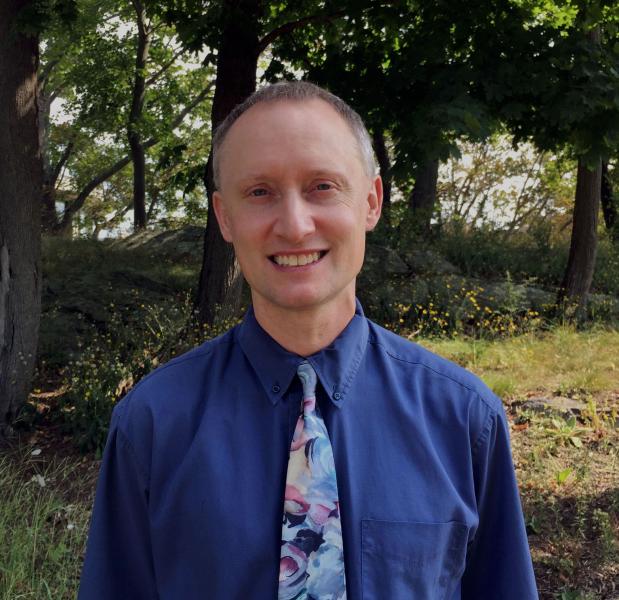
Director/Psychologist
Pronouns he/him/his. Dr. Bailey joined the Center as Assistant Director in 2011. He was appointed Associate Director in 2015, named Interim Director in 2016, and promoted to Director in 2018. Dr. Bailey is also an adjunct faculty member at William James College. He has a B.A. in psychology from Providence College and a M.A. in clinical psychology from Connecticut College. Chris earned a doctorate in counseling psychology from University of Missouri-Kansas City. He is a licensed psychologist in Rhode Island. Prior to Roger Williams, his previous counseling center experience included Rhode Island College, Rockhurst University, Stonehill College, and the University of Missouri-Columbia. Dr. Bailey also worked in career services, community mental health centers, juvenile probation, an inpatient hospital, and residential care with individuals diagnosed with neurodevelopmental disorders. His professional interests include administration, career psychology, college student development, emotion regulation, mental health destigmatization, outreach presentations (topics such as happiness, stress reduction, and sleep), personality theories, positive psychology, supervision, and training. In his free time, Chris enjoys art, baseball, music, time with family and friends, as well as travel.
Lauren Clark, Psy.D.
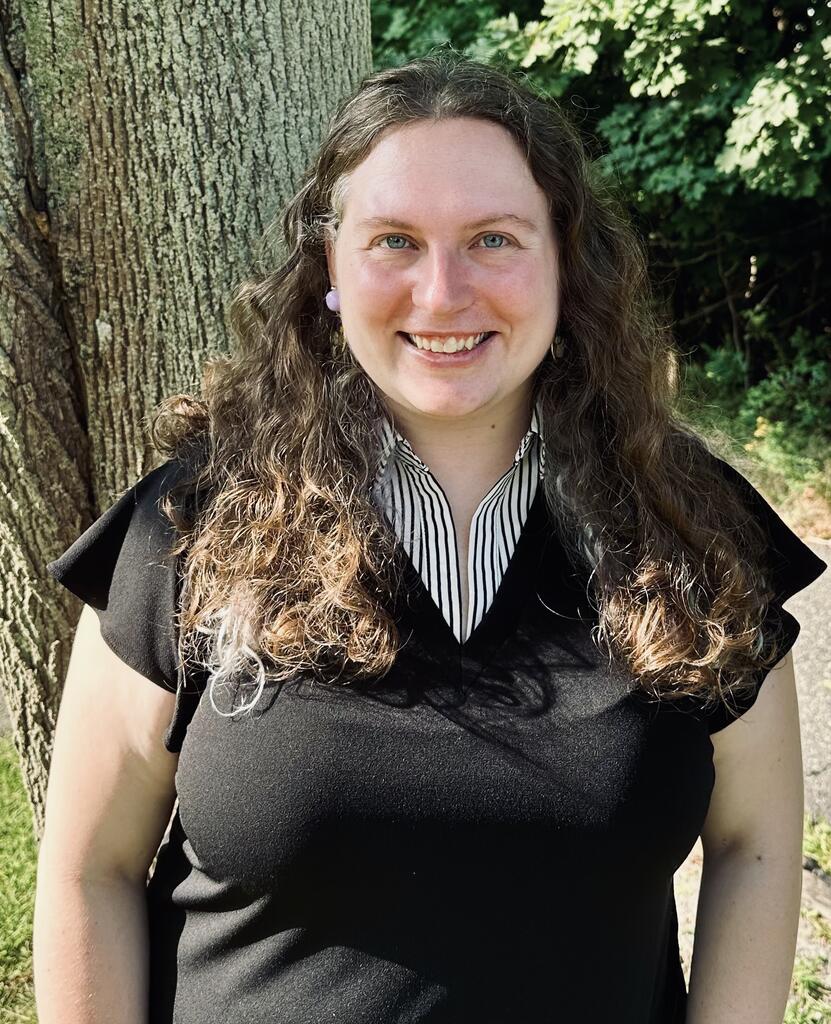
Staff Clinician
Pronouns she/her/hers. Dr. Clark joined the Center in 2023. She became a staff member in 2024 after completing her fellowship training in the Center. She has a B.A. in psychology and a M.A. in clinical psychology, both from University of Hartford. Lauren earned a doctorate in clinical psychology from Marywood University. Prior to Roger Williams, her previous counseling center experience included Marywood University and SUNY Oneonta. Dr. Clark also worked in community mental health and an inpatient hospital. Her professional interests include anxiety, crisis intervention, phobias, relationship concerns, and trauma. In her free time, Lauren enjoys celebrating Halloween, concerts (especially Taylor Swift), time with friends, as well as Trader Joe's.
Meghan DeCarvalho, LICSW
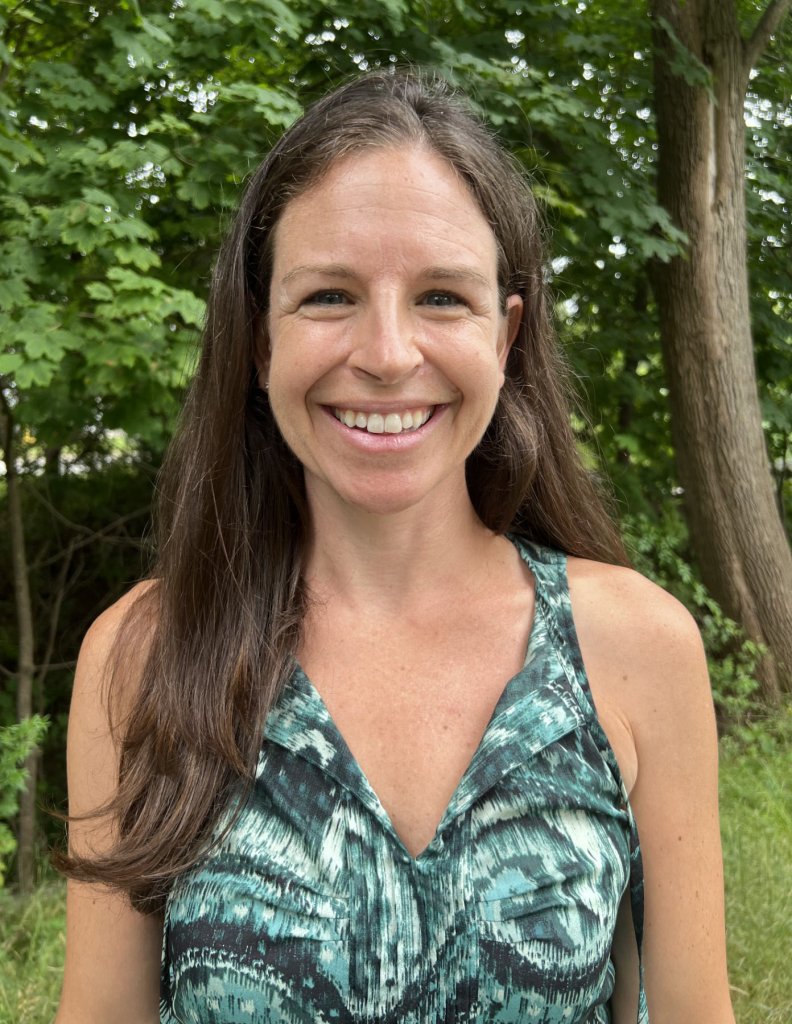
Assistant Director
Pronouns she/her/hers. Meghan joined the Center in 2023 as Assistant Director. She has a B.A. in psychology from Saint Anselm College and earned a M.S.W. from Smith College. Prior to Roger Williams, her previous counseling center experience included Salve Regina University, where she had been Director of Counseling Services, as well as Stonehill College and University of Colorado Boulder. She also worked at Bradley Hospital, with children on the autism spectrum, and teaching social skills classes. Her professional interests include adjustment, assertiveness, grief and loss, growth mindset, healthy relationships, identity development, mindfulness, social justice, and substance use. In her free time, Meghan enjoys gratitude, physical activity and sports, the sun, time with family and friends, as well as walking.
Lisa Donovan, M.D.
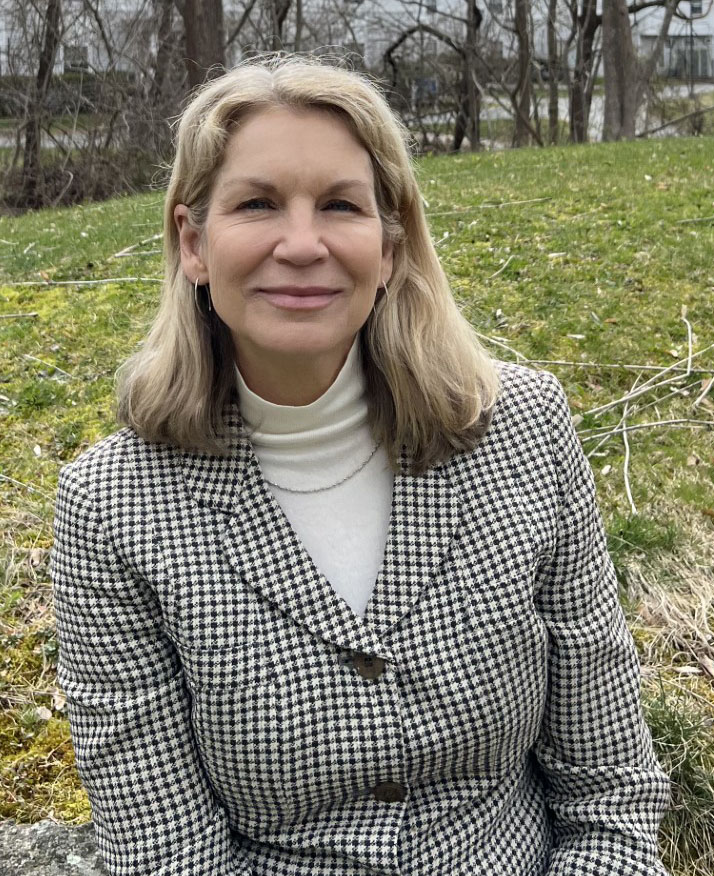
Consulting Psychiatrist
Pronouns she/her/hers. Dr. Donovan joined the Center in 2024. She has a B.A. in physics from University of Mississippi and earned her M.D. from Tulane University. Dr. Donovan is double board-certified in general psychiatry and child and adolescent psychiatry having done her residency and fellowship at New York Medical College and Cornell. She is licensed as an Allopathic Physician in Rhode Island. Dr. Donovan was on the clinical faculty at the Yale Child Study Center for 25 years and served in a variety of mental health settings with college counseling centers being her most favorite. In her free time, Lisa enjoys cycling, hiking, improving her Spanish, live music, reading, puzzles, as well as travel.
Caterina Duarte, M.A.
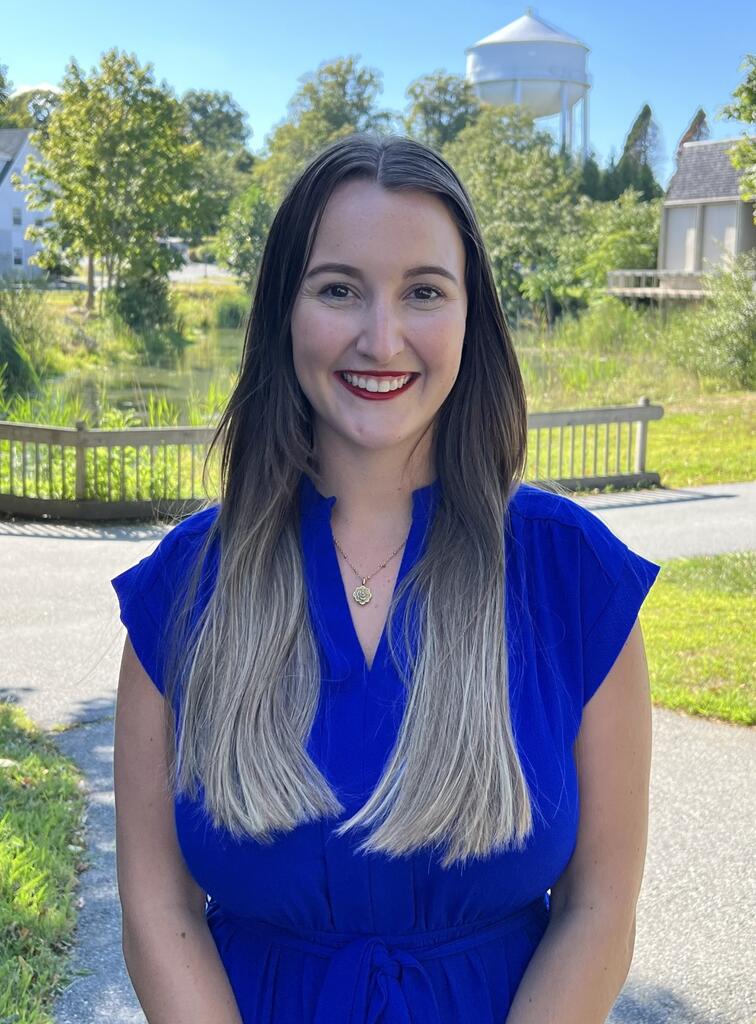
Psychology Intern
Pronouns she/her/hers. Caterina joined the Center in 2025. Allison has a B.S. in psychology from Endicott College. She earned her M.A. in clinical mental health counseling from William James College where she is currently a fourth-year doctoral candidate in clinical psychology. Caterina's professional interests include adjustment, anxiety, self-esteem, and trauma. In her free time, she enjoys art, the beach, dancing, fashion, time with friends and family, travel, and watching sports.
Allison Irish, M.A.
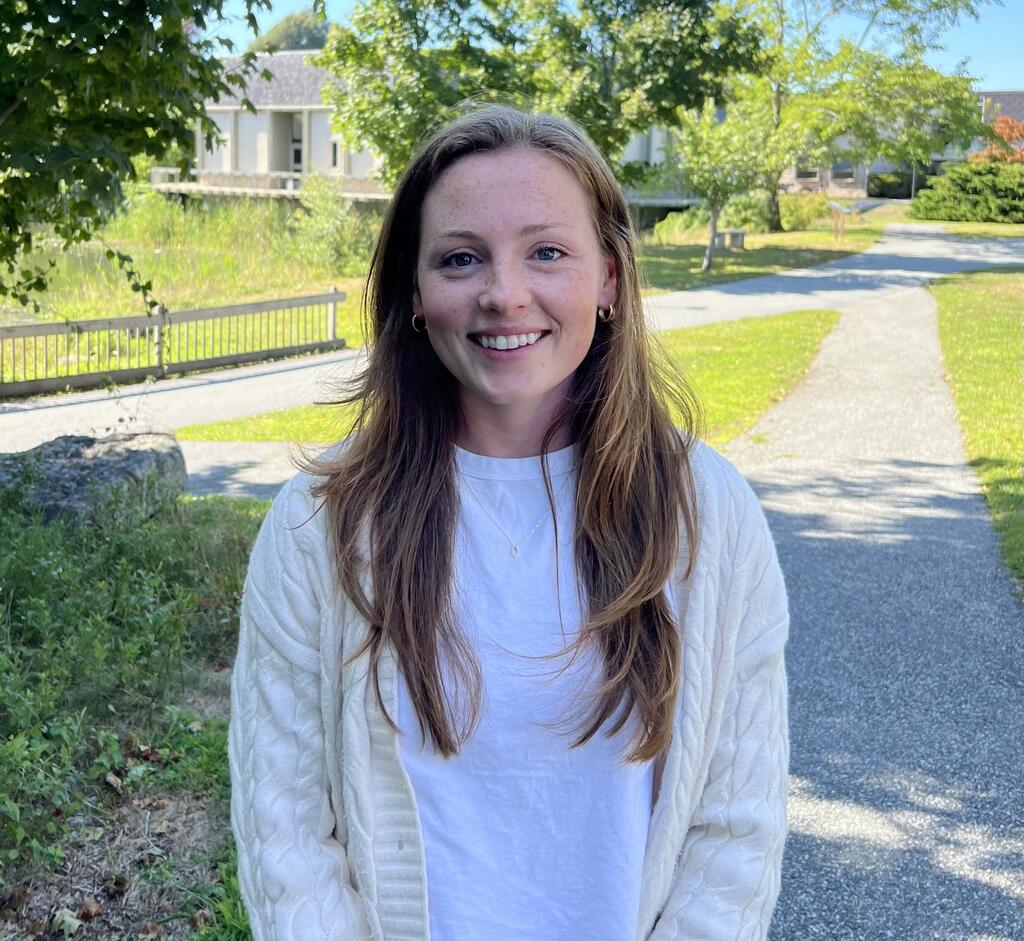
Psychology Intern
Pronouns she/her/hers. Allison joined the Center in 2025. Allison has a B.A. in psychology from Saint Anselm College. She earned her M.A. from William James College where she is currently a fourth-year doctoral candidate in clinical psychology. Allison has previous counseling center experience as a trainee at Wheaton College. Her professional interests include anxiety, identity development, interpersonal relationships, obsessions and phobias, sport/performance psychology, student-athletes, and trauma. In her free time, Allison enjoys baking, being outdoors (i.e., hiking, snowboarding, running, and walking), listening to music, baking, and time with friends and family.
Kineret Kandelker, Psy.D.
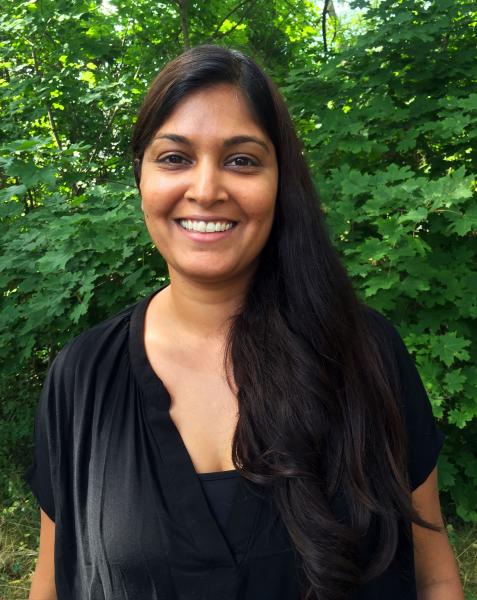
Staff Psychologist
Pronouns she/her/hers. Dr. Kandelker joined the Center in 2013. She became a staff member in 2017 after completing both her internship and fellowship trainings in the Center. Kineret has a B.A. in psychology from University of Connecticut. Dr. Kandelker earned a M.A. and doctorate in clinical psychology from William James College. She is a licensed psychologist in Rhode Island. Kineret also worked in a community setting and an inpatient hospital. She has created and facilitated trainings for diversity, equity, and inclusion both at Roger Williams and with other organizations. Dr. Kandelker's professional interests include emotion regulation, interpersonal relationships, and social justice and health equity. In her free time, Kineret enjoys baking, hiking, reading, as well as time with family and friends.
Maureen Minarik, Ph.D.

Associate Director/Psychologist
Pronouns she/her/hers. Dr. Minarik joined the Center in 2015. She was appointed Assistant Director in 2016 and promoted to Associate Director in 2022. She has a B.A. in psychology from University of Maryland, College Park. Maureen earned a M.A. in psychology and doctorate in clinical psychology from American University. She is a licensed psychologist in Rhode Island. Prior to Roger Williams, her previous counseling center experience included American University, Johnson & Wales University, and University of Rhode Island. She completed an internship with the United States Navy and has served on active duty. Maureen also worked in an employee assistance program, military settings, inpatient hospitals, and a VA medical center. Dr. Minarik's professional interests include assisting service members and families, grief and loss, living well with illness, positive psychology, size diversity and acceptance, and suicide prevention. In her free time, Maureen enjoys creativity, fitness and running, reading, time with family and friends, as well as travel.
Morgan Turchetta, M.A.
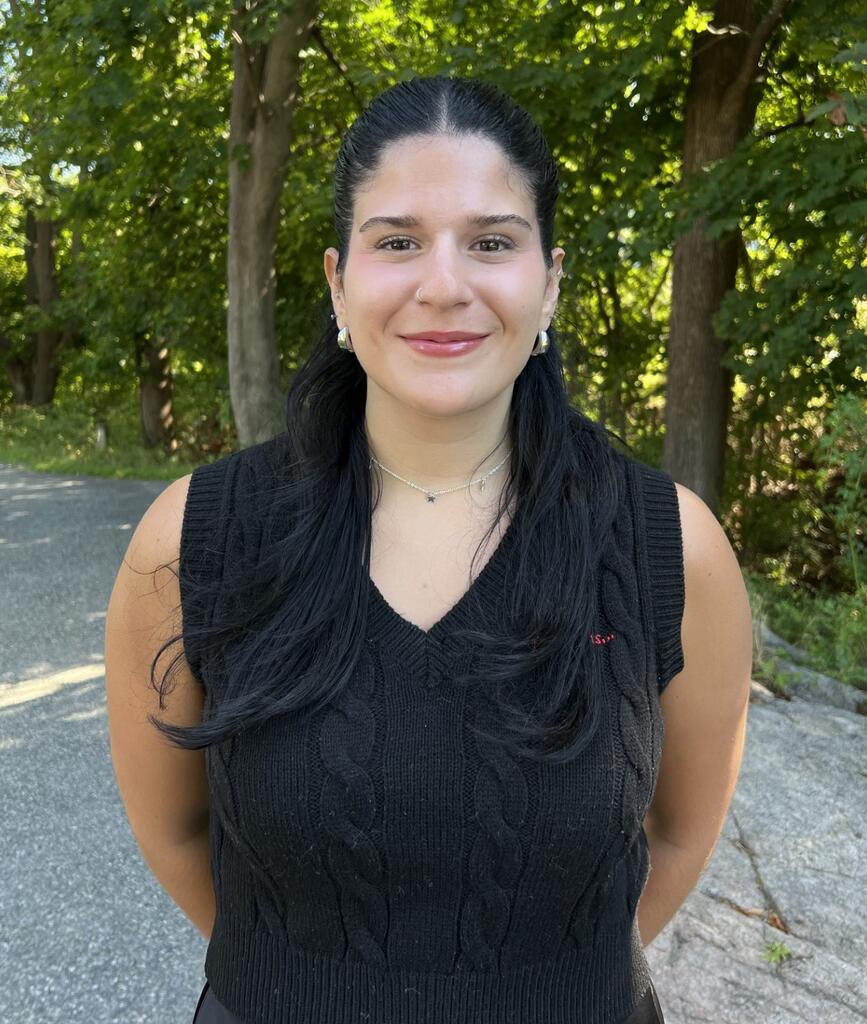
Psychology Intern
Pronouns she/her/hers. Morgan joined the Center in 2025. Morgan has a B.A. in psychology from Temple University. She earned her M.A. from William James College where she is currently a third-year doctoral candidate in clinical psychology. Morgan's professional interests include attachment, identity, interpersonal relationships, intimate partner violence, and self-esteem. In her free time, she enjoys concerts, time with friends and family, and walking and other physical activities.
Jennifer Vieira
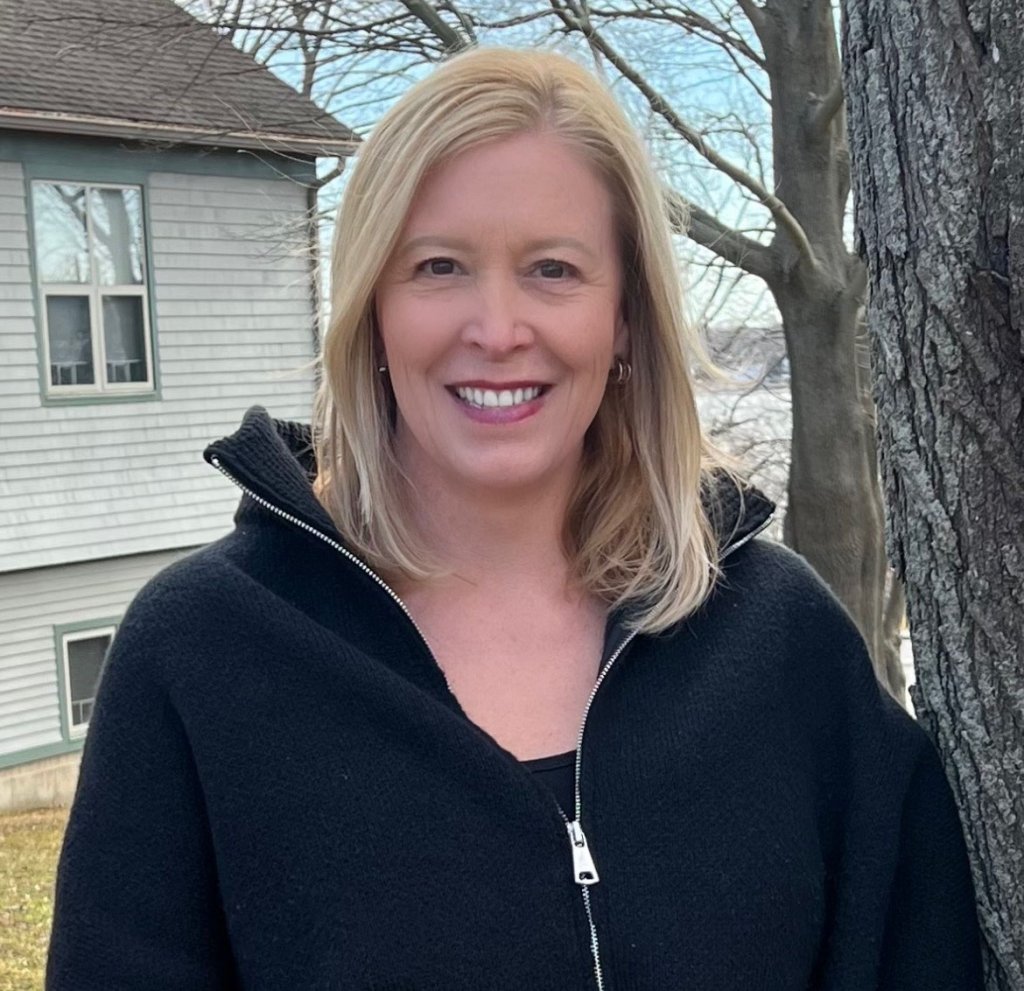
Secretary
Pronouns she/her/hers. Jennifer joined the Center in 2023. She has many years of experience providing clerical support in healthcare and public school settings. In her free time, Jennifer enjoys biking, boating, hiking with her two doodles Remy and Petey, musical theater, and time with family and friends.
Emergencies
For EMERGENCIES or urgent concerns, if you are on campus currently, call Public Safety (available 24/7/365) at 401-254-3333. Options for any student, regardless of where you live, include calling 988 or 911, visiting a local hospital emergency room, and/or contacting any of these free and confidential resources available to you:
General Crisis Services (24/7/365)
- RWU Public Safety: 401-254-3333
- National Suicide Prevention Lifeline: 988
- East Bay Center 401-246-0700
- The Samaritans of Rhode Island: 401-272-4044 or 800-365-4044
- National Hopeline Network: 800-442-HOPE (4673)
- Crisis Text Line: Text HOME to 741-741
Specialized Crisis Services
- Asian LifeNet Hotline: 877-990-8585 [available in Cantonese, English, Fujianese, Japanese, Korean, or Mandarin]
- Persons of Color Crisis Text Line: Text STEVE to 741-741
- The Trans Lifeline: 877-565-8860 [available Mon-Fri 1:00pm-9:00pm on non-holidays]
- Trevor LGBTQ Lifeline: 866-488-7386 or text START to 678-678
Trauma Resources
- Day One: 800-494-8100 [sexual assault]
- Disaster Distress Helpline: 800-985-5990 or text TalkWithUs to 66746 [coronavirus, mass violence incident, or natural disaster; available in over 100 languages]
- National Domestic Violence Hotline: 800-799-SAFE (7233) or text LOVEIS to 1-866-331-9474 [domestic violence]
- National Sexual Assault Hotline: 800-656-HOPE (4673) [sexual assault]
- Rhode Island Coalition Against Domestic Violence Helpline: 800-494-8100 [dating violence, domestic violence, sexual abuse, or stalking]
Report a Bias Incident at RWU
Social Media
Also follow us on Instagram!